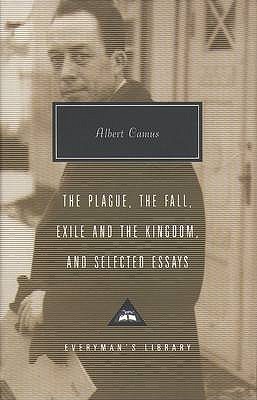
The Plague
Book Description
A mysterious plague descends upon the once peaceful town of Oran, shattering the serene facade of daily life. As fear grips the hearts of its citizens, a disparate group of individuals wrestles with despair, hope, and the fragility of existence. With each passing day, the stakes rise, relationships are tested, and the struggle for survival deepens into a poignant examination of humanity’s resilience in the face of overwhelming darkness. As despair stirs rebellion amongst the oppressed, the question lingers: how can one find meaning and connection in a world overtaken by chaos?
Quick Book Summary
"The Plague" by Albert Camus chronicles the harrowing descent of the Algerian city of Oran into chaos as a relentless epidemic claims lives and exposes the fragility of human society. Through the eyes of Dr. Bernard Rieux and several other townspeople, the novel delves into themes of suffering, existentialism, and the moral choices people face in crisis. As quarantine measures isolate Oran, the collective and individual responses reveal both the depths of despair and moments of profound solidarity. Camus uses the plague as an allegory for broader human experiences of absurdity and belonging, highlighting the necessity of resilience, empathy, and the search for meaning in an unpredictable world.
Summary of Key Ideas
Table of Contents
Absurdity and the Human Condition
The peaceful port city of Oran is abruptly thrown into turmoil when rats begin dying in the streets, foreshadowing the outbreak of a deadly plague. Dr. Bernard Rieux, the story’s central figure, is among the first to recognize the gravity of the situation. As the authorities delay taking decisive action, the disease spreads rapidly and the city is sealed off from the outside world, trapping its population within a tightening web of fear and uncertainty. Camus’s depiction of the city’s initial denial reflects the human tendency to resist accepting uncomfortable truths.
Solidarity and Isolation
As the crisis deepens, Oran’s citizens are forced to confront their isolation and mortality. The novel follows a cast of characters—journalist Raymond Rambert, priest Father Paneloux, bureaucrat Joseph Grand, and outsider Jean Tarrou—each responding in distinct ways. Some, like Rieux and Tarrou, take active roles fighting the epidemic, while others are paralyzed by grief or selfishly seek escape. Their personal transformations and struggles highlight existential themes of absurdity and the search for meaning amid suffering.
Moral Responsibility and Choice
Throughout the ordeal, the city’s inhabitants oscillate between despair and moments of shared empathy. Camus emphasizes solidarity as individuals collaborate in volunteer squads, care for the ill, and support one another. This collective effort becomes a quiet rebellion against the dehumanizing power of the plague. The acts of courage and kindness, though often small, reveal the potential for dignity even in the bleakest circumstances and foster a sense of purpose.
Suffering and Resilience
The plague exposes each character to moral dilemmas and demonstrates the weight of responsibility individuals bear for one another. Rieux, committed to alleviating suffering, embodies Camus’s ideal of perseverance without illusions; he treats patients even knowing he cannot cure them. Similarly, others are called to ethical action not because they expect to win, but because compassion and resistance to death’s absurdity are ends in themselves.
Search for Meaning Amid Chaos
By the novel’s end, the city experiences relief as the plague recedes, but Camus resists offering easy consolation. The survivors carry forward both trauma and newfound solidarity. The story closes on the insight that plagues—and all forms of suffering—are never truly vanquished, merely subdued for a time. Camus’s meditation on the human response to catastrophe compels readers to find meaning not through grand achievements, but in everyday acts of kindness and the persistent fight against life’s inherent injustices.
Download This Summary
Get a free PDF of this summary instantly — no email required.





